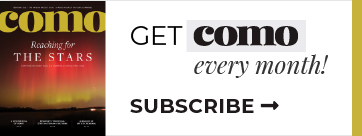Shelf Life: Embracing the Quiet

Hearing the voice of reason over the loudest opinion in the room.
I am an introvert. Hear me roar. Quietly, at home, probably in writing . . . but still.
Only in my recent entry into middle age (Surprise! It’s second adolescence!) have I truly embraced the gifts of my introversion and come to believe that my thoughts, words, and contributions matter. I owe this in part to “Quiet: The Power of Introverts in a World that Can’t Stop Talking” by Susan Cain.
Cain’s transformative book and “Quiet Revolution” helped me recognize the value of my own blend of introversion and how vital it is to share my unique gifts with the world. Apparently, I’m not alone in embracing “Quiet” — its rise on the New York Times bestseller list ushered in a veritable introvert spring of Facebook posts, blogs, and Buzzfeed articles extolling the virtues of the suddenly chic introvert.
If you are familiar with Myers-Briggs or the work of Carl Jung, you know that introversion is, after all, simply one end of a spectrum of personality — everyone falls somewhere along the line between total introversion and total extroversion. Introverts make up an estimated 16 to 50 percent of the population, but introversion is often treated like a second-class personality trait in a world that rewards people who are outgoing, gregarious, and naturally charming.
Heralded as an introvert manifesto, “Quiet” offers thoughtful encouragement for those who may feel out of step in an increasingly chaotic and noisy world. What a radical thought: Perhaps introverts are not strange, shy, or “other” as our extroverted society tends to portray us?
What if introversion was recognized as a strength? How might introverts see themselves differently when they are celebrated rather than marginalized? In “Quiet,” Cain persuasively argues that introversion is more common than people realize, and that the world needs the quiet and cerebral thinkers, now more than ever. After all, much of history’s most profound ideas, art, and inventions are courtesy of introverts.
Thoroughly researched (Cain’s legal background is apparent in her clear and persuasive prose), “Quiet” sets out a historical account of how Western society has built up an extrovert ideal: charismatic, loud, and action-oriented. The recipe for great leadership, right? Perhaps. However, what is lost when our culture embraces the loudest voice in the room over the quiet voice of reason? Cain argues that our enthusiastic embrace of extroversion has the negative impact of silencing contemplative thought, stifling creativity, and squandering the great thinking of our day. In other words, the world needs (and is, indeed, desperate for) the unique gifts of introverts.
Cain makes her argument masterfully. She pushes against our cultural tendency toward extroversion while simultaneously encouraging the value of introversion. Yet Cain doesn’t blame extroverts, or suggest that they’re inferior. On the contrary, she says extroverts and introverts need one another. Their strengths balance each other’s weaknesses. The challenge, of course, is that the quiet voices are rarely heard. Cain, perhaps unwittingly, embodies a loud, quiet voice in the wilderness. With a passionate and clear case, Cain speaks for the quiet ones. The thinkers. The philosophers. The artists.
Even if you are unfamiliar with introversion, and regardless of where you fall on the introvert–extrovert spectrum, “Quiet” has immense value as a guide to understanding yourself and those around you. Cain’s stated purpose in “Quiet” is to help you discover a newfound sense entitlement to be yourself. Discovering and owning the truest parts of who you are is the work of a lifetime. Consider “Quiet” to be a guidepost along the way.


